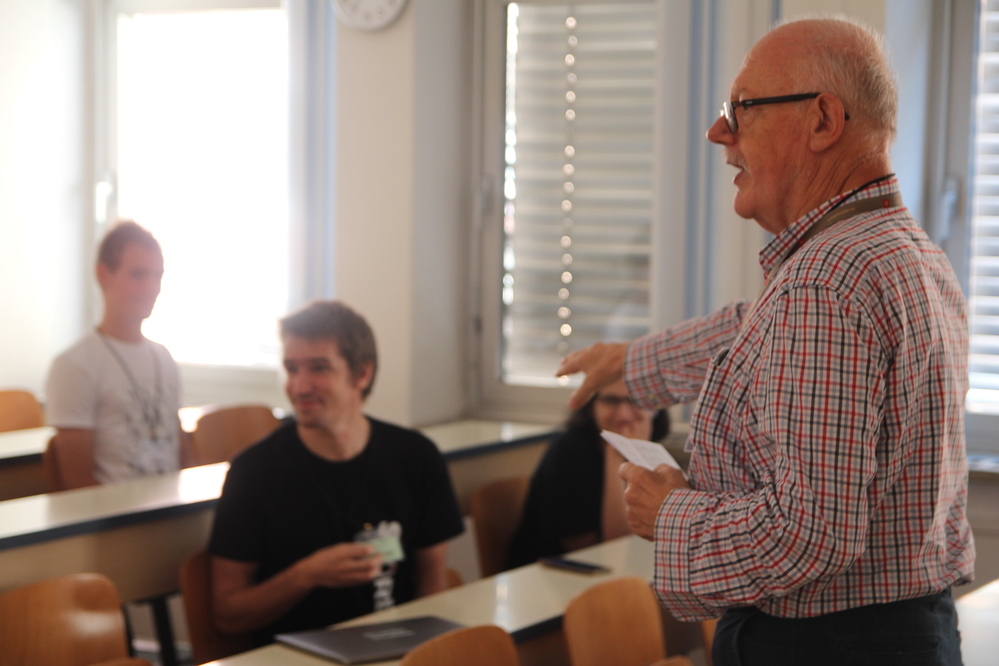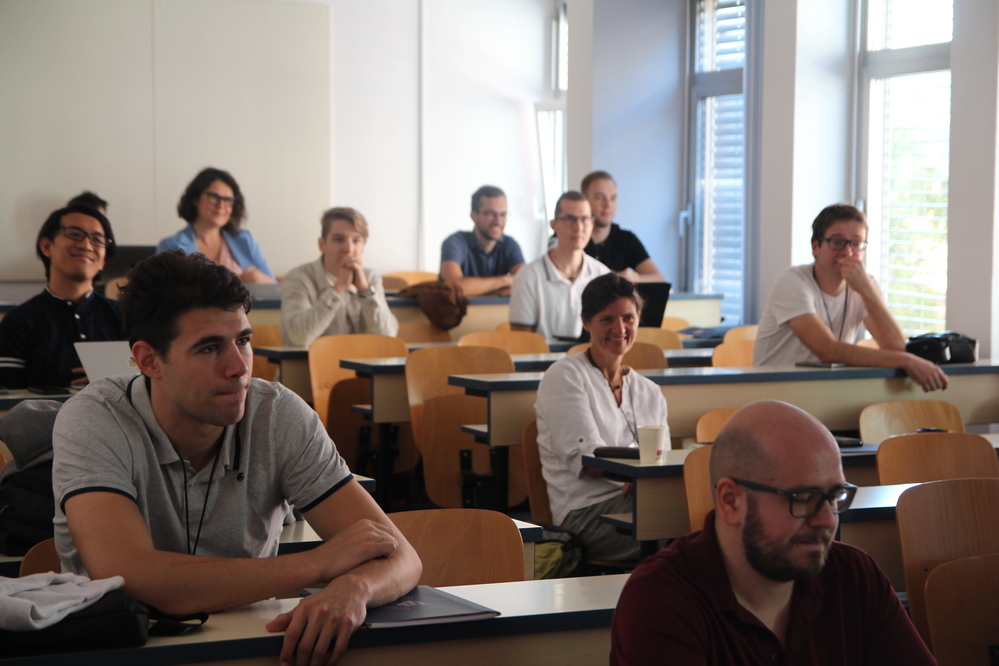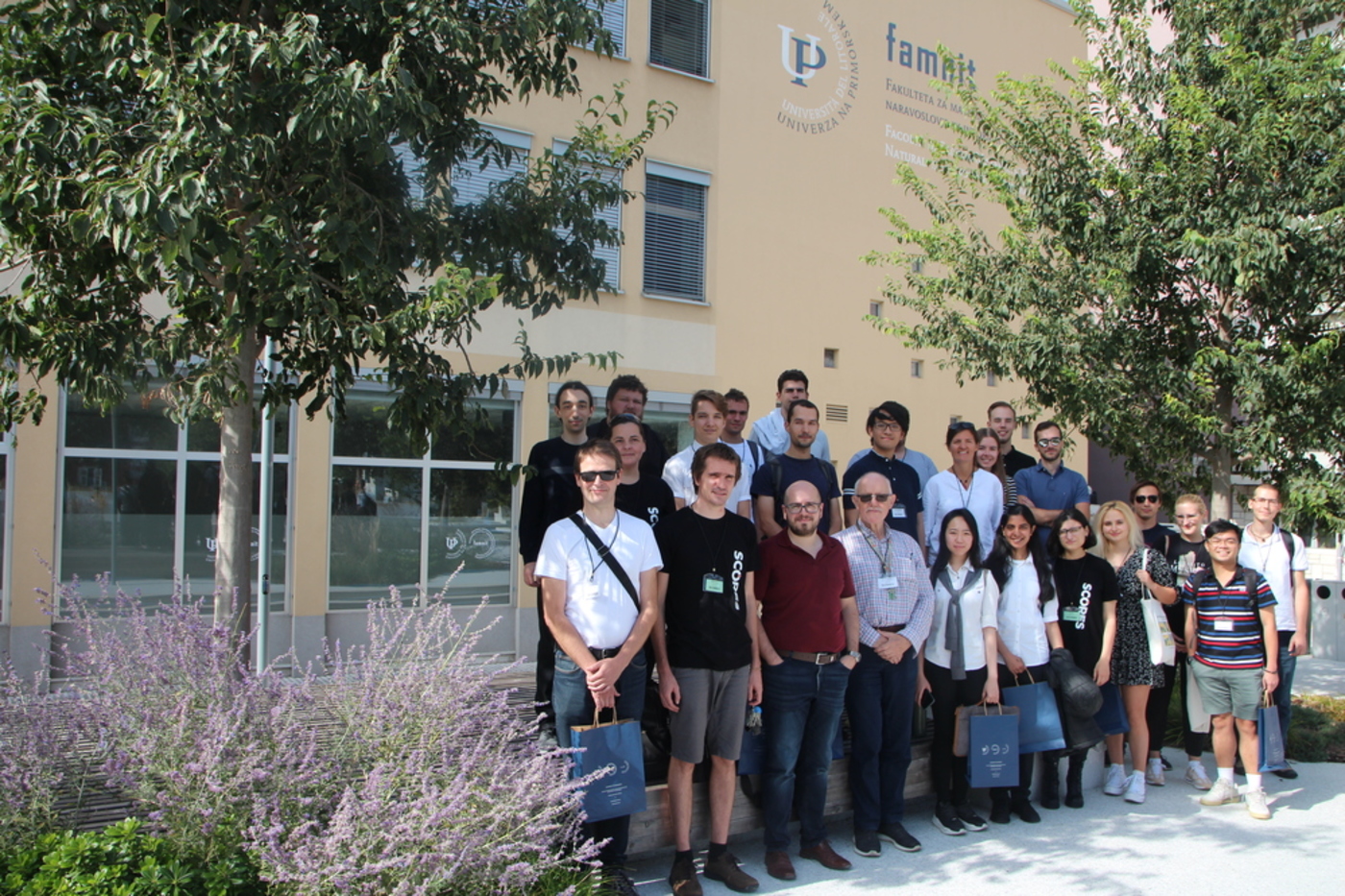SCORES Conference: Empowering Students to Publish Research in Computer Science
The Student Computing Research Symposium SCORES took place on the 5th of October at UP FAMNIT.
Since 2014, the computer science departments of UP, UL, and UM have collaborated to organize this conference. Each year, one of the universities is chosen as the primary organizer. For the 9th edition, UP FAMNIT has taken the lead, partnering with UP IAM and SDAMS with ACM Slovenija as a co-organizer of this year's event. UP FAMNIT & UP IAM previously organized the event in 2016 and 2019.
SCORES stands out as one of the few Slovenian conferences exclusively designed for undergraduate and master's students. It encourages them to present and publish their research works in the realm of computer science. To be eligible as a (co)author of a paper at SCORES, at least one of the contributors must be an undergraduate or master's student, promoting collaboration and creativity among students.
The event commenced with a warm welcome from Prof. Tomaž Pisanski, head of the Department of Information Sciences and Technologies at UP FAMNIT and UP IAM. Prof. Pisanski encouraged active participation and offered valuable advice to the attendees on how to leverage such events to broaden their horizons.
This year's invited speakers include Marko Grgurovič and Marko Grobelnik, both esteemed former doctoral students of UP FAMNIT.
Marko Grgurovič serves as the general director of Triternion and is the lead developer of Mordhau, the first Triternion game to top the sales chart on the Steam platform. Mordhau sold an impressive 500,000 copies in its first week of release. His lecture at SCORES is titled Research and Development in the Video Game Industry.
Marko Grobelnik is a renowned expert in the field of artificial intelligence. He co-leads the AiLab at the IJS Institute and collaborates with significant European academic institutions and major industrial companies, including Bloomberg, British Telecom, the European Commission, Microsoft Research, and New York Times. His lecture at SCORES is titled Knowledge Graphs and Large Language Models.
In addition to the plenary sessions, the conference featured 13 lectures presented by the participants.
Looking ahead, we are delighted to anticipate next year's conference, which will mark a decade of collaboration between faculties. This collaboration aims to ensure that students acquire the knowledge, skills, and abilities necessary for the rapidly evolving digital world.



